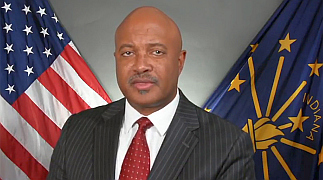 The Securities and Exchange Commission (SEC) should retain the authority to ask courts to require defendants to return money obtained by defrauding investors, Attorney General Curtis Hill said in a brief filed with the U.S. Supreme Court.
The Securities and Exchange Commission (SEC) should retain the authority to ask courts to require defendants to return money obtained by defrauding investors, Attorney General Curtis Hill said in a brief filed with the U.S. Supreme Court.
The brief, filed by Attorney General Hill and 23 other attorneys general, argues that restricting the SEC from seeking this remedy in its enforcement efforts would harm investors, lead to unfair and dysfunctional securities markets and embolden wrongdoers.
“We should not reward individuals who improperly take money from investors by allowing them to keep those wrongfully obtained funds,” said Attorney General Hill. “We must protect the right of the SEC to ask courts to force wrongdoers to repay stolen money. This authority enables fair restitution and serves as a deterrent to others who might otherwise break the law.”
Requiring swindlers to return profits, a process known as disgorgement, is one of the surest ways to restore losses to those who have been harmed by fraudulent activities. In fiscal year 2019, fraudulent actors were ordered to repay more than $3.2 billion in enforcement actions brought by the SEC. Through disgorgement, states and the SEC are able to provide relief to victims of Ponzi schemes and other scams often sold to investors.
In the brief, the attorneys general argue that preventing the SEC from using disgorgement in court actions would permit lawbreakers to keep their ill-gotten gains and perpetuate their scams. Additionally, requiring wrongdoers to return profits promotes confidence in securities markets.














